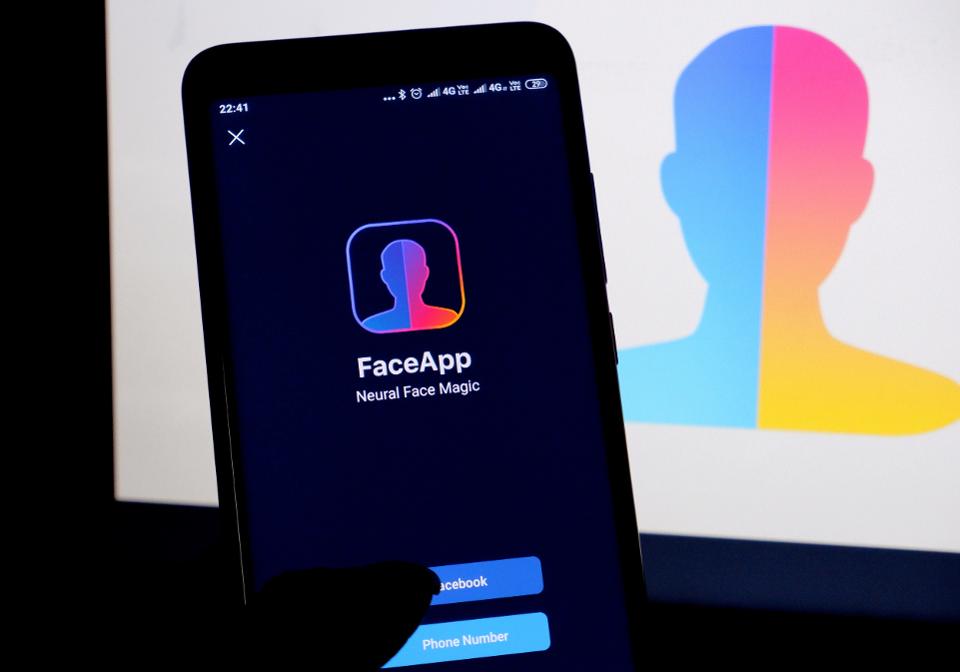By Jonathan de Jongh
The popular mobile app ‘FaceApp’ has come under fire recently after a media scare alluded to the app being able to collect sensitive information from the phones of its users. Allegedly, the app has the ability to access photos on the phones of its users, even those that were not used for the app’s entertaining purposes – aging, de-aging, and gender reversing faces.[i] The sweeping phenomenon of seeing what we’ll look like in 70 years attracted such celebrities as Kevin Hart, Miley Cyrus, and Gordon Ramsey, and FaceApp allowed users to use its features on any photo their users had access to.
After the app was discovered to have a Russian developer, concerns were raised around consumer protections under the app’s privacy policy. Several experts pointed out that weak privacy protections are often overlooked – apps such as Snapchat, Instagram and Facebook have similarly standard and relatively weak policies when it comes to protecting user data.[ii]
https://www.elitedaily.com/p/is-faceapp-available-on-android-heres-what-to-know-about-the-app-on-google-play-18207694
So where does this leave us, the everyday users of said apps? Considering how much of our daily lives takes place on social media, is there really an option to boycott it? Can we take the risk and hope that our data, and even something as personal as our own faces, will not be used and abused by large companies? Is there anything Parliament can do to legislate against this?
The current legislation regarding this issue is the Privacy Act 1993 (the Act), which empowers the Privacy Commissioner to examine proposed legislation to observe its effects on privacy, investigate breaches of privacy, and facilitate the principles of privacy set out in the Privacy Act.[iii] Through these 12 principles of privacy, there are provisions detailing how, when, for what, and why private data should be collected and also removed when no longer needed.[iv] Certain policy and social concerns, such as law enforcement reasons, can override privacy, but this all comes beneath this legislation.
Difficulty arises when looking at companies outside of New Zealand that fall outside of the jurisdiction of the Act. Almost every single social media platform popular in our society is built and run from other countries such as the United States; so what kind of protection do we have against their collection of our data?
It is important to remember the seemingly insignificant small box users tick before signing up for any such site. There is a tendency to see the words “privacy policy” or “terms and conditions” and immediately sign away important rights without realizing. This is not just limited to social media – online shopping sites and many general websites require us to consent to their particular terms Even for those who are diligent in reading the policies, they are still subject to change, and not noticing this could leave your claim to your data in the lurch if you are not careful.[v]
Unfortunately, for companies that fall outside of our jurisdiction, there is not a lot we can do in preventing data mining, especially when users agree to this inadvertently every time they log on. However, these companies do fall under other jurisdictions, and can be held to account in their own jurisdictions. Mark Zuckerberg’s appearance before the Senate in April 2018 was a radical departure from the limited accountability social media moguls had preserved till then. American lawmakers have begun to take notice of the lack of legal constrictions around social media companies collecting and potentially using citizens’ data. At Zuckerberg’s hearing, senators and representatives were confronted with the worrying nature of Facebook’s monopoly in the social media sphere, especially considering the numerous sites and platforms it has purchased over the years, including Instagram.[vi] After Cambridge Analytica’s gross misuse of Facebook user data in last year’s scandal, and with Zuckerberg and others now under the watchful eye of the Senate and the House of Representatives, limitations overseas may help preserve our data here.[vii]
https://variety.com/2018/digital/news/facebook-stock-mark-zuckerberg-testifies-senate-1202749625/
Waiting for change overseas may be difficult, and so the answers may lie in petitioning locally for more stringent privacy legislation. Highlighting these issues to MPs is an important step in reclaiming some of our privacy and dignity. Jacinda Ardern has been in contact with Facebook executive Sheryl Sandberg after the Christchurch attack earlier this year regarding the site’s delayed response to removing the graphic content shared about the incident.[viii] This is bringing the dangers of this platform and many others to light, and by petitioning the Government to take these issues overseas to the places they originate, New Zealand may have a role in stopping the problem at the source.
What conclusion can we come to on FaceApp and apps like it? The chair of the Australian Privacy Foundation recommends not using FaceApp, while lawyer Michael Bradley weighed in with a cautionary message about the ramifications of doing so.[ix] Today’s citizens are offered the right to access and share the data they want to but doing so should be done with discretion. As with so many decisions in today’s world, the decider must bear the consequences if they choose to engage.
While a lot of our data is already on the internet, demanding change to protect future generations from losing their identities online is crucial. While today’s society demands so much of us through our data in our jobs and social lives, we have a right to protect what is inherently ours – our information.
For more information on how to protect yourself online, the Office of the Privacy Commissioner offers some ways to do so:
[i] https://www.abc.net.au/news/2017-04-27/should-you-worry-about-privacy-when-using-faceapp/8476666
[ii] https://www.abc.net.au/news/2017-04-27/should-you-worry-about-privacy-when-using-faceapp/8476666
[iii] https://www.privacy.org.nz/about-us/about-privacy/ ; https://www.privacy.org.nz/about-us/what-we-do/
[iv] http://www.legislation.govt.nz/act/public/1993/0028/latest/whole.html#DLM297056
[v] https://www.privacy.org.nz/news-and-publications/guidance-resources/keeping-safe-online/protect-yourself-online/
[vi] https://www.theverge.com/2018/4/10/17222444/mark-zuckerberg-senate-hearing-highlights-cambridge-analytica
[vii] https://www.nytimes.com/2018/04/10/business/dealbook/mark-zuckerberg-congress-hearing.html
[viii] https://www.abc.net.au/news/2019-03-19/new-zealand-facebook-christchurch-shooting-video-sheryl-sandberg/10915184
[ix] https://www.abc.net.au/news/2017-04-27/should-you-worry-about-privacy-when-using-faceapp/8476666
Featured Image: https://www.forbes.com/sites/davidphelan/2019/07/22/viral-app-faceapp-the-dangers-of-faceapp-are-just-the-beginning-heres-whats-coming-next/
The Public Policy Club is a non-partisan club at the University of Auckland that aims to encourage, educate and involve students from all backgrounds in the education and development of political knowledge. The views and opinions expressed in this article are those of the author and do not necessarily reflect those of PPC.



 https://variety.com/2018/digital/news/facebook-stock-mark-zuckerberg-testifies-senate-1202749625/
https://variety.com/2018/digital/news/facebook-stock-mark-zuckerberg-testifies-senate-1202749625/

